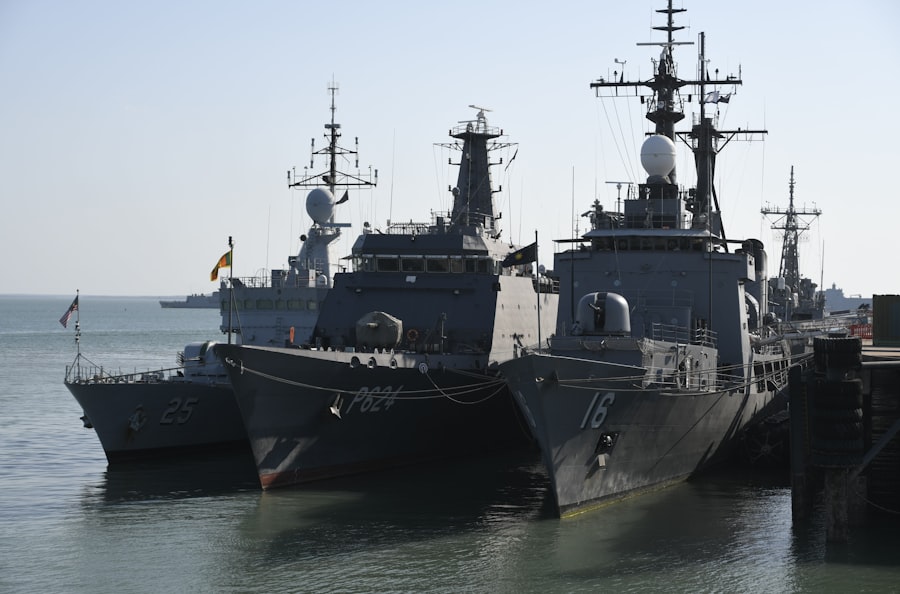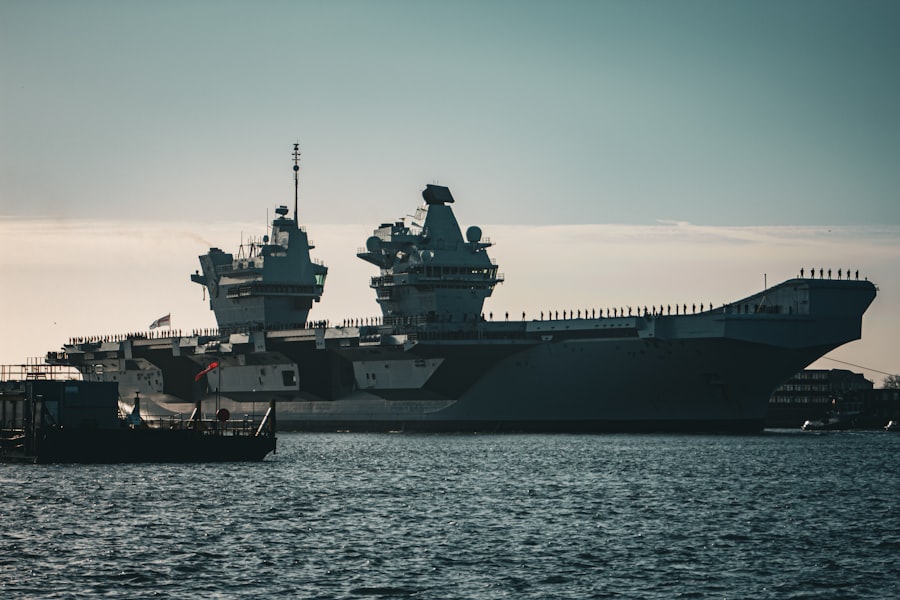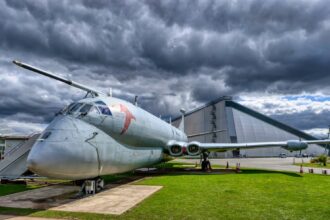In recent years, Russia has significantly increased its military presence in Africa, marking a notable shift in the geopolitical landscape of the continent. This involvement is not merely a fleeting interest; it reflects a strategic endeavor to expand influence and forge alliances with various African nations. As Western powers have often been preoccupied with their own domestic issues and conflicts, Russia has seized the opportunity to position itself as a key player in African affairs.
The Kremlin’s approach combines military cooperation, economic partnerships, and political support, creating a multifaceted strategy aimed at enhancing its global standing. The motivations behind Russia’s military engagement in Africa are complex and multifarious. They range from securing access to vital natural resources to countering Western influence and establishing a foothold in a region that has historically been dominated by Western powers.
This article will explore the historical context of Russia’s relationships with African countries, current military partnerships, and the implications of this growing presence.
Key Takeaways
- Russia has a long-standing history of military and political relationships with various African countries, evolving from Cold War alliances to modern partnerships.
- Current military collaborations include arms sales, training, and strategic support, enhancing Russia’s influence across the continent.
- Russian mercenaries play a significant role in several African conflicts, raising concerns about stability and international law.
- Russia’s growing military presence in Africa challenges the influence of other global powers like the US, China, and France.
- African nations have mixed views on their military ties with Russia, balancing benefits against controversies and geopolitical risks.
Historical Background of Russia’s Relationships with African Countries
The roots of Russia’s engagement with Africa can be traced back to the Soviet era when the USSR sought to extend its influence across the globe, particularly during the Cold War. The Soviet Union provided military and economic assistance to various liberation movements and newly independent states in Africa, positioning itself as a champion of anti-colonialism. This historical connection laid the groundwork for future relationships, as many African nations viewed the USSR as a counterbalance to Western imperialism.
Following the dissolution of the Soviet Union in 1991, Russia’s focus shifted, and its involvement in Africa waned significantly. However, the early 21st century saw a resurgence of interest in the continent, driven by a combination of economic interests and geopolitical strategy. The Russian government recognized Africa’s potential as a market for arms sales and a source of valuable resources such as oil, gas, and minerals.
This renewed focus has led to a revival of diplomatic ties and military cooperation with several African nations, reflecting a desire to reclaim influence lost during the post-Soviet period.
Current Military Partnerships between Russia and African Nations

Today, Russia has established military partnerships with numerous African countries, ranging from Algeria and Egypt to Sudan and the Central African Republic. These partnerships often involve joint military exercises, training programs, and intelligence sharing, aimed at enhancing the capabilities of African armed forces. For instance, Russia has provided military training to various African nations, equipping them with modern tactics and strategies to address regional security challenges.
Moreover, these partnerships are not limited to traditional military cooperation; they also encompass broader security arrangements. Russia has positioned itself as a reliable ally for countries facing internal conflicts or external threats. By offering military support and expertise, Russia seeks to solidify its role as a key player in regional security dynamics while simultaneously fostering goodwill among African leaders.
This approach has allowed Russia to gain leverage in diplomatic negotiations and enhance its influence across the continent.
Russia’s Arms Sales and Military Aid to African Countries
| Country | Type of Military Aid | Arms Sales Volume (Units) | Key Equipment Supplied | Year of Last Major Deal | Strategic Importance |
|---|---|---|---|---|---|
| Algeria | Arms Sales & Training | 150+ (Tanks, Aircraft) | T-90 Tanks, Su-30 Fighters | 2023 | Counterterrorism, Regional Stability |
| Egypt | Arms Sales | 100+ (Helicopters, Missiles) | Ka-52 Helicopters, Kornet Missiles | 2022 | Strategic Partnership, Regional Influence |
| Angola | Military Aid & Arms Sales | 50+ (Armored Vehicles, Small Arms) | BTR-80 APCs, AK-74 Rifles | 2021 | Resource Security, Military Modernization |
| Sudan | Military Aid | 30+ (Small Arms, Artillery) | PK Machine Guns, D-30 Howitzers | 2020 | Counterinsurgency Support |
| Democratic Republic of Congo | Military Training & Arms Sales | 40+ (Light Vehicles, Small Arms) | UAZ Vehicles, AK-47 Rifles | 2023 | Stability Operations, Anti-Rebel Efforts |
| Zimbabwe | Military Aid | 20+ (Small Arms, Training) | AK-47 Rifles, Military Advisors | 2022 | Political Alliance, Security Cooperation |
One of the most significant aspects of Russia’s military involvement in Africa is its arms sales and military aid programs. Over the past decade, Russia has emerged as one of the leading suppliers of arms to African nations, competing with established players like the United States and China. The Kremlin has capitalized on the demand for military equipment in Africa, providing everything from small arms to advanced weaponry.
These arms sales are often accompanied by military aid packages that include training and logistical support. For example, countries like Angola and Nigeria have received substantial military assistance from Russia, enabling them to bolster their defense capabilities. This relationship is mutually beneficial; while African nations gain access to much-needed military resources, Russia secures lucrative contracts that contribute to its defense industry’s growth.
Furthermore, these transactions often come with fewer political strings attached compared to Western arms sales, making them more appealing to many African governments.
Implications of Russia’s Growing Military Presence in Africa
The increasing military presence of Russia in Africa carries significant implications for both the continent and global geopolitics. On one hand, it provides African nations with alternative sources of military support and technology, which can enhance their security capabilities. This diversification can be particularly beneficial for countries seeking to reduce reliance on Western powers or those facing sanctions that limit their access to military resources.
On the other hand, Russia’s growing influence raises concerns about potential destabilization in certain regions. The influx of arms and military support could exacerbate existing conflicts or lead to new tensions between rival factions within countries. Additionally, as Russia seeks to expand its footprint in Africa, it may inadvertently contribute to a new form of neocolonialism where local governments become overly dependent on foreign military support for their security needs.
Comparison of Russia’s Military Partnerships with other Global Powers in Africa

When comparing Russia’s military partnerships in Africa with those of other global powers, distinct differences emerge in approach and strategy. The United States and European nations have traditionally focused on promoting democratic governance and human rights alongside their military assistance programs. In contrast, Russia tends to prioritize pragmatic relationships based on mutual interests without imposing political conditions.
China also plays a significant role in Africa but primarily emphasizes economic investments rather than direct military engagement. While China has provided some security assistance through peacekeeping missions and training programs, its focus remains on infrastructure development and trade partnerships. This divergence highlights how Russia’s approach is more aligned with authoritarian regimes that prioritize state sovereignty over democratic reforms.
The Role of Russian Mercenaries in African Conflicts
An increasingly prominent aspect of Russia’s military involvement in Africa is the role of private military contractors (PMCs), particularly the Wagner Group. These mercenaries have been deployed in various conflict zones across the continent, often operating alongside local forces or supporting regimes facing internal strife. Their presence raises questions about accountability and the legality of their operations.
The Wagner Group has been linked to several controversial actions in countries like Libya and the Central African Republic, where they have been accused of human rights abuses and exacerbating conflicts. While these mercenaries provide deniability for the Russian government, their activities complicate the security landscape in Africa and can undermine efforts for peace and stability. The use of PMCs also reflects a broader trend where states outsource military operations to private entities, blurring the lines between state responsibility and private enterprise.
Criticisms and Controversies Surrounding Russia’s Military Engagement in Africa
Russia’s military engagement in Africa has not been without criticism and controversy. Many observers express concern over the potential for human rights violations associated with Russian arms sales and mercenary activities. Reports of atrocities committed by Russian-backed forces have raised alarms among international human rights organizations, prompting calls for greater scrutiny of Moscow’s actions on the continent.
Furthermore, critics argue that Russia’s approach undermines efforts toward sustainable development and conflict resolution in Africa. By prioritizing military solutions over diplomatic engagement or economic development, Russia risks perpetuating cycles of violence rather than contributing to long-term stability. This criticism highlights the need for a balanced approach that considers both security needs and broader socio-economic factors affecting African nations.
African Countries’ Perspectives on their Military Relationships with Russia
African countries exhibit diverse perspectives on their military relationships with Russia, shaped by historical ties, current security challenges, and geopolitical considerations. For some nations, particularly those with legacies of Soviet support during their liberation struggles, there is a sense of nostalgia that fosters positive sentiments toward Russian engagement. These countries often view Russia as a reliable partner that respects their sovereignty and offers assistance without imposing political conditions.
Conversely, other nations remain cautious about deepening ties with Moscow due to concerns over dependency on foreign powers for security needs. Some leaders express apprehension about aligning too closely with Russia amid fears that it could lead to increased instability or conflict within their borders. Ultimately, African countries navigate these relationships based on their unique circumstances, weighing the benefits of military cooperation against potential risks.
Future Projections for Russia’s Military Involvement in Africa
Looking ahead, it is likely that Russia will continue to expand its military involvement in Africa as part of its broader strategy to enhance global influence. The demand for military support among African nations is expected to persist due to ongoing security challenges such as terrorism, civil unrest, and regional conflicts. As long as these issues remain prevalent, Russia will likely position itself as a key provider of military assistance.
However, this expansion may also face challenges from competing global powers seeking to maintain or regain influence in Africa.
Additionally, domestic factors within Russia could impact its ability to sustain such initiatives abroad if economic conditions change or if public sentiment shifts regarding foreign interventions.
Assessing the Impact of Russia’s Growing Military Partnerships in Africa
In conclusion, Russia’s growing military partnerships in Africa represent a significant shift in the geopolitical dynamics of the continent. While these relationships offer opportunities for enhanced security cooperation and access to resources for African nations, they also raise critical questions about accountability, human rights, and long-term stability. As Russia continues to assert its influence through arms sales and military aid, it is essential for both African leaders and international observers to carefully assess the implications of these engagements.
The future trajectory of Russia’s involvement will depend on various factors, including regional security dynamics, responses from other global powers, and the evolving needs of African nations themselves. Ultimately, striking a balance between security needs and sustainable development will be crucial for ensuring that these partnerships contribute positively to Africa’s future rather than perpetuating cycles of conflict or dependency on foreign powers.
Russia’s military partnerships in Africa have been a topic of increasing interest, particularly as the geopolitical landscape shifts. A related article that delves into the implications of these partnerships can be found on In The War Room, which explores the strategic motivations behind Russia’s engagement with various African nations. For more insights, you can read the article [here](https://www.inthewarroom.com/).
WATCH THIS! The Secret War for Africa’s Gold: How Private Armies Fund Global Conflict
FAQs
What is the nature of Russia’s military partnerships with African countries?
Russia’s military partnerships with African countries typically involve arms sales, military training, joint exercises, and security cooperation. These partnerships aim to strengthen defense capabilities and foster strategic alliances.
Which African countries have significant military ties with Russia?
Countries such as Egypt, Algeria, Angola, Sudan, and the Central African Republic have notable military relationships with Russia, including arms procurement and military advisory support.
What types of military equipment does Russia provide to African nations?
Russia supplies a range of military equipment to African countries, including fighter jets, helicopters, armored vehicles, small arms, and air defense systems.
How does Russia benefit from its military partnerships in Africa?
Russia benefits by expanding its geopolitical influence, securing access to natural resources, opening markets for its defense industry, and countering Western influence on the continent.
Are there any controversies surrounding Russia’s military involvement in Africa?
Yes, some Russian military activities in Africa have raised concerns about human rights, the use of private military contractors, and the impact on regional stability.
Does Russia provide military training to African forces?
Yes, Russia offers military training programs to African personnel, including officer education, tactical training, and specialized courses in various military disciplines.
How do Russia’s military partnerships in Africa compare to those of other global powers?
Russia’s approach often emphasizes arms sales and security cooperation without extensive political conditions, contrasting with Western countries that may link military aid to governance and human rights criteria.
What role do private military companies play in Russia’s military presence in Africa?
Russian private military companies, such as the Wagner Group, have been active in several African countries, providing security services, training, and support to local forces, sometimes operating alongside official military cooperation.
Is Russia involved in peacekeeping or conflict resolution efforts in Africa?
While Russia participates in some UN peacekeeping missions, its primary involvement in Africa focuses on bilateral military cooperation rather than multilateral peacekeeping operations.
How has Russia’s military engagement in Africa evolved in recent years?
In recent years, Russia has increased its military presence and partnerships in Africa, expanding arms sales, establishing military bases, and deepening security cooperation as part of a broader strategy to enhance its global influence.




